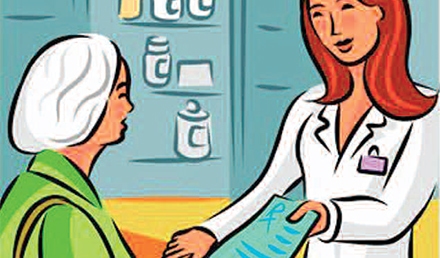John Shufeldt, MD, JD, MBA, FACEP In his book, How the Mighty Fall: And Why Some Companies Never Give In, Jim Collins discusses the five markers or stages of decline and how a company can identify these stages and reverse itself even after large-scale defeats along the way. (Or, as Bluto (John Belushi) said in Animal House, “Was it over when the Germans bombed Peral Harbor?”) Applying those stages to the rough patch of road …
Read MoreUnderstanding and Embracing the Phrase ‘It Depends’
Developing Data: March, 2010
In early 2008, UCA revamped its annual survey in conjunction with researchers at Massachusetts General Hospital and Harvard University with the goal of assuring that the UCA Benchmarking Committee’s efforts produced a scientifically valid report. Here, we present some of the data from this landmark survey. In this issue: What occupational medicine services – if any – are most commonly available in responding urgent care centers? The question regarding occupational medicine was just one segment …
Read MoreConsult Codes, Injection Codes, and Coding for Diabetes Education and In-House Dispensing
Q. My codes for consults seem to suddenly be getting denied as invalid. I checked my CPT book, and the codes are still listed as valid. What’s going on? Question submitted by multiple urgent care billers A. Yes, you are right that the consultation codes (99241-99245, 99251-99255) are still valid per CPT, as published by the AMA. CMS, however, has decided to no longer reimburse for those codes and has now changed the status indicator …
Read MoreUsing Evidence-based Care Paths
Oscar Wilde was quoted as saying, “Life imitates art far more than art imitates life.” This was never more apparent to me than a few Mondays ago when I was paraded in front of a number of primary care doctors who questioned the use of “care paths” in urgent care medicine. The leader of the mob was a gentleman who was the patriarch of a local family practice clinic. The meeting opened this way. “I …
Read MoreDeveloping Data: February, 2010
In each issue on this page, we report on research from or relevant to the emerging urgent care marketplace. This month, we share insight into the most common reasons patients choose to visit an urgent care center. These data reflect the results of a cross sectional survey of 1,006 patients who visited an urgent care clinic.1 Reasons named by less than 40% of patient included: transportation available at that time told to come by outside …
Read MoreCoding for Two Visits in One Day, Billing for Atypical Urgent Care Services, and Billing on the UB-04
Q. The patient in question is a new patient to the urgent care. At 10 a.m., she visited the urgent care with chief complaint of cough, headache, and myalgias. She was discharged home with a final diagnosis of cough and prescription for ibuprofen and cough syrup. At 3 p.m., she retuned with a complaint of headache and was treated with IM headache medications and sent home with a diagnosis of headache with pain meds. How …
Read More‘Sorry’ Shouldn’t Be the Hardest Word
The following movies, in my opinion, are non-starters on first dates. In no particular order: Sophie’s Choice (tragic) Schindler’s List (depressing) The Exorcist (freaky) The English Patient (mind-numbing boredom) Terms of Endearment (heart-wrenching) and finally, Love Story (sappy). You may, if you were born before 1960, remember the tagline and memorable quote in Love Story. “Love means never having to say you’re sorry.” Oh please, even in 1970, when I was 10-years-old, I knew that …
Read MoreMake Connectivity Part of Your Marketing Strategy
We live in an entirely new business world these days: a world in the midst of rapid change and new rules. Three words seem to embody this new reality: • leverage • integration • alliances These three words apply well to urgent care clinic sales and marketing. They can also be viewed as essential to the concept of connectivity. Here, we will review how connectivity can be used to enhance an urgent care clinic’s occupational …
Read More
Building Urgent Care Referral Relationships Part 2: EDs, PCPs, and Specialists
Urgent message: Forging solid relationships with other clinicians in emergency, primary care, or specialty settings can help facilitate two-way referrals and prove beneficial to all parties involved – including patients. The second of two parts. Alan A. Ayers, MBA, MAcc Overbooked primary care officers and time-consuming (not to mention costly) trips to the emergency room leave many patients frustrated and feeling they have no place left to turn when a medical condition requires immediate attention …
Read More